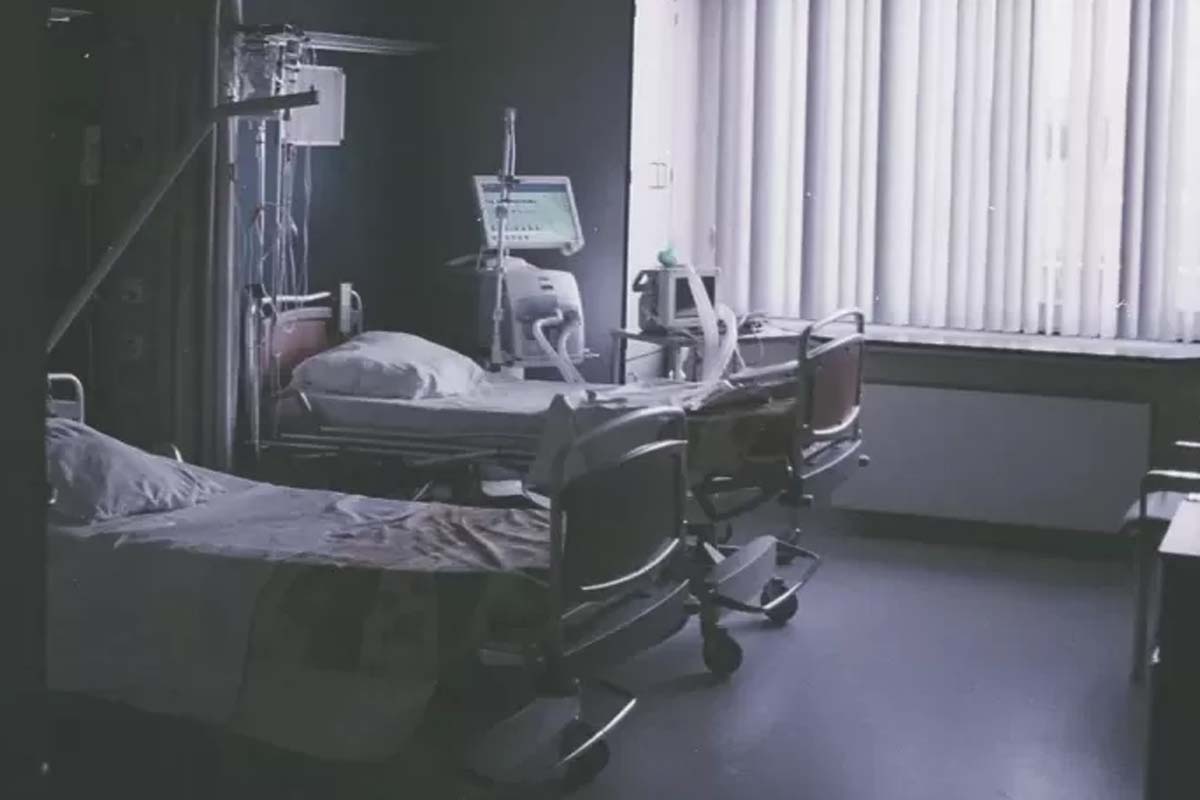What Is a Fatal Injury Claim in Ireland?
Fatal injury claims in Ireland are legal actions brought by the families and dependents of an individual who has died as a result of someone else’s negligence or wrongdoing. The aim of these claims is to provide financial compensation to the family for their loss. These claims cover situations where the deceased could have pursued a personal injury claim had they survived, but due to the fatal outcome, the right to claim passes to the family.
In Ireland, a fatal injury claim can stem from a wide range of circumstances, such as:
- Workplace accidents: If an employer fails to provide a safe working environment.
- Road traffic accidents: When negligence by another driver or vehicle malfunction leads to a fatal accident claim.
- Medical negligence: Errors or omissions by healthcare professionals that result in a wrongful death.
- Defective products: In cases where faulty products cause a fatal injury.
The purpose of such claims is not just to seek financial compensation but also to hold the responsible party accountable for their actions, ensuring they follow the law and provide adequate care in the future.
Who Can Make a Fatal Injury Claim in Ireland?
Under the Civil Liability Act 1961, only certain individuals can make a fatal injury claim in Ireland. The claim must generally be brought by the “statutory dependents” of the deceased. Statutory dependents include individuals who were financially or emotionally dependent on the deceased, such as:
- Spouse or civil partner: A surviving partner who relied on the deceased for financial support and/or companionship.
- Children, including adopted children: If they were dependent on the deceased’s income or emotional support.
- Parents or grandparents: In cases where the deceased was providing financial aid or care to elderly parents.
- Siblings: Brothers or sisters who may have been financially supported by the deceased.
- Co-habiting partners: If the deceased lived with someone in a relationship resembling marriage for a minimum of two years before the death.
The claim must be initiated by one family member on behalf of all the dependents. In cases where there is a dispute among family members, the court may determine how any compensation awarded should be distributed among the dependents.
Common Causes of Fatal Injury Claims in Ireland
Fatal injury claims Ireland arise from several different scenarios. While not exhaustive, some of the most common causes include:
- Road Traffic Accidents: Unfortunately, Ireland experiences hundreds of road fatalities each year, many of which result from reckless driving, speeding, or drunk driving. Pedestrians, cyclists, and motorists can all be victims of such accidents, leading to fatal accident claims.
- Workplace Accidents: In certain industries, particularly construction, agriculture, and manufacturing, accidents can lead to fatalities. These deaths from a fatal accident often result from inadequate safety measures, failure to follow health and safety regulations, or defective machinery.
- Medical Negligence: Instances of medical negligence leading to misdiagnosis, surgical errors, failure to provide appropriate treatment, or birth injuries can lead to fatalities. Medical professionals and institutions may be held accountable if negligence is proven.
- Defective Products: When faulty products, such as dangerous machinery or toxic consumer goods, result in a fatality, manufacturers or distributors can be held liable through fatal accident claims.
- Public Liability: Fatal injuries can occur due to accidents in public spaces, such as slip-and-fall incidents, drowning, or other accidents that happen as a result of unsafe environments.
These tragic circumstances often leave families seeking justice and compensation for their loss, which is why understanding the legal options is crucial.
Fatal Injury Claims and Medical Negligence: What You Need to Know
Medical negligence is a particularly sensitive area of fatal injury claims. It occurs when healthcare professionals fail to provide the standard of care expected, leading to a patient’s death. These claims can be complicated as proving negligence in medical cases requires expert testimony, a thorough review of medical records, and clear evidence of the professional’s failure to meet the necessary standard of care.
Common instances of medical negligence resulting in fatal injury claims include:
- Misdiagnosis or delayed diagnosis: A failure to diagnose a serious condition, such as cancer or heart disease, can have fatal consequences if treatment is delayed or inappropriate.
- Surgical errors: Mistakes made during surgery, such as operating on the wrong part of the body or leaving surgical instruments inside the patient, can be grounds for a fatal injury claim.
- Medication errors: Prescribing the wrong medication or dosage can lead to severe health complications and even death.
- Failure to monitor patients properly: This often occurs in emergency rooms or post-operative care when staff do not adequately observe a patient’s vital signs, resulting in preventable fatalities.
In recent years, there have been a large number of high profile medical negligence cases in Ireland that have highlighted systemic issues within the healthcare system. This includes claims relating to misread cervical smears. These cases have led to reforms and heightened scrutiny, with families pushing for accountability and increased compensation limits.
Legal Process: How to Initiate a Fatal Injury Claim
Initiating a fatal injury claim in Ireland involves several key steps. Understanding these steps will help families navigate the legal process effectively:
- Contact a Solicitor: The first step is to consult with a firm of experienced fatal accident solicitors who deal with fatal injury claims. The solicitor will evaluate the circumstances and provide advice on the viability of the claim.
- Investigating the Claim: This involves gathering evidence, such as witness statements, medical records, accident reports, and any relevant documentation. In medical negligence cases, expert testimony is essential to establish that negligence occurred.
- Filing a Claim with the Injuries Resolution Board (IRB) formerly known as the Personal Injuries Assessment Board (PIAB): Before proceeding to court, a fatal injury claim must first be submitted to the IRB, Ireland’s independent body for assessing personal injury claims. If the respondent consents to the IRB making an assessment, they will issue an award. If either party rejects the assessment, legal proceedings can be issued.
- Proceeding to Court: If the claim cannot be resolved through the IRB or negotiations with the defendant’s insurance company, it may be necessary to take the claim to court, where a judge will determine the outcome.
- Settlement or Trial: Many fatal injury claims are settled out of court through negotiations. However, if a settlement cannot be reached, the case will go to trial.
What Compensation Can Be Claimed in a Fatal Injury Case?
The fatal injury compensation that can be claimed in fatal injury cases in Ireland covers a range of financial losses and emotional suffering. The primary categories of compensation include:
- Funeral expenses: Reasonable funeral costs associated with the funeral expenses of the deceased person can be recovered.
- Loss of financial support: Dependents can claim for the financial support that the deceased person would have provided had they lived. This includes loss of income, pension contributions, and other benefits.
- Loss of benefits: If the deceased person was providing health benefits, housing, or other forms of support, dependents may claim compensation for these losses.
- Compensation for mental distress (solatium): Irish law allows dependents to claim a fixed sum for emotional suffering and loss of companionship, currently capped at €35,000. This amount is shared among the dependents.
- Legal representation at an Inquest: The legal costs of representation required at an inquest relating to the fatal accident can be recovered.
The overall aim of compensation is to help alleviate the financial burden that comes with losing a loved one, though it cannot replace the emotional loss.
Nervous Shock: Claiming Compensation for Emotional Trauma
In addition to compensation for financial losses and the emotional suffering due to the loss of a loved one, Irish law also allows individuals to claim for nervous shock arising from a fatal injury. Nervous shock refers to a psychiatric injury or mental trauma suffered by a person as a direct result of witnessing a fatal accident or learning about a loved one’s sudden death in traumatic circumstances.
What Is Nervous Shock?
Nervous shock is a recognised psychiatric injury that goes beyond ordinary grief or sorrow. It involves the development of a severe emotional or mental disorder, such as post-traumatic stress disorder (PTSD), anxiety, or depression, as a result of witnessing a tragic event or being directly involved in the circumstances surrounding a fatal injury.
To claim for nervous shock in Ireland, the following must generally be demonstrated:
- Proximity to the Event: The claimant must have been physically present at the scene of the accident or arrived immediately afterward to witness its immediate aftermath. For instance, a family member arriving on the scene of a fatal road traffic accident moments after it happened may be eligible.
- Relationship to the Deceased: Close family members such as parents, children, spouses, or siblings are more likely to succeed in a nervous shock claim. The closer the relationship to the deceased, the stronger the case for claiming nervous shock.
- Diagnosed Psychiatric Injury: It must be proven that the mental distress suffered is a recognized psychiatric injury. General upset or grief, while tragic, does not meet the threshold for compensation. A medical diagnosis by a psychiatrist or psychologist is usually required to support the claim.
Time Limits for Filing a Fatal Injury Claim in Ireland
The time limits for filing a fatal injury claim in Ireland are set by the Statute of Limitations. Generally, dependents have two years from the date of death to initiate a claim. However, exceptions may apply in cases where:
- The cause of death was not immediately apparent: For example, if the death resulted from an illness caused by long-term exposure to a harmful substance, the time limit may begin from the date the cause was discovered.
- Delayed discovery of medical negligence: If a death is later attributed to medical negligence, the time limit may start from the date this negligence is uncovered.
It is crucial to act quickly when considering a fatal injury claim to ensure that the relevant time limit applicable is adhered to.
Choosing the Right Legal Representation for a Fatal Injury Claim
Selecting the right solicitor to handle a fatal injury claim is critical. Given the emotional and legal complexity of these cases, families should seek experienced legal professionals who specialise in personal injury and fatal accident claims. Finding the right legal representation ensures that the claim is handled efficiently, maximizing the chances of a successful outcome for the family.
Fatal injury claims in Ireland are a critical avenue for families seeking justice and compensation after the loss of a loved one. By understanding the legal process, eligibility requirements, and recent changes in Irish law, families can make informed decisions about pursuing a claim. If you believe your loved one’s death was the result of negligence, it’s important to act within the legal time limits and seek professional legal advice to maximize your chances of success.
We have significant experience in fatal injury and medical negligence claims. If you wish to discuss a fatal injury compensation claim then please contact our experienced fatal accident solicitors as soon as possible.





